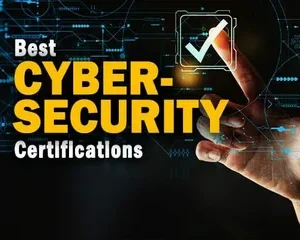Introduction
Is the idea of caring for others calling you, but you can’t make in-person classes fit your schedule? That’s where online caregiving courses step in. Especially in health care, building skills like dementia care or safety protocols from anywhere is not just convenient, it’s game changing. Let’s explore 10 great platforms where you can learn, earn certificates, and grow confidence, all from your comfort zone in 2025.
1. Alison – Free Online Caregiving Courses with Certificates
Alison offers a rich catalog of free caregiving courses from dementia care to wellbeing and safety. You’ll earn CPD-accredited certificates and diplomas, helping you polish your resume with credentials like “Diploma in Caregiving” or “Caregiving Skills , Dementia Care” Alison+1.
2. Coursera – Caregiving Courses from Leading Universities
On Coursera, you’ll find top-tier caregiving courses from universities, structured, flexible, and often offering certification. Want to upskill with confidence? You’ll find options here to explore. Coursera
3. SC Training – Microlearning Caregiver Modules (Free with Certificates)
SC Training packs bite-sized modules on topics like dementia care, sepsis awareness, first aid, safe patient handling, medication management, and more. Perfect when you’re juggling life yet want to grow skills and yes, they come with free certificates SafetyCulture Training.
4. Family Caregiver Alliance (FCA) – Caregiver College Video Series
Need practical tips fast? FCA’s Caregiver College video series offers short, real-world lessons on helping with mobility, nutrition, and daily caregiving issues. Pro tip: these are available in multiple languages with accessibility built-in A Place for Mom.
5. mmLearn.org – Video Library for Caregivers
mmLearn.org offers a 300-plus video library from professionals covering depression, memory issues, elder law, and more. Think of it as your caregiving video encyclopedia always available when challenges arise A Place for Mom.
6. Caregiver Action Network – Video Resource Center
For condition-specific caregiving insights, such as Alzheimer’s, COPD, and Parkinson’s—the Caregiver Action Network serves up video-friendly, family-focused tales and tips from real caregivers and experts A Place for Mom.
7. American Caregiver Association – Affordable Certifications
If you want a certificate that’s widely recognized and run on your schedule, the American Caregiver Association offers course bundles like the National Caregiver Certification (NCCC) or Alzheimer’s caregiving—all at budget-friendly prices and entirely online American Caregiver Association+1.
8. U.S. Career Institute – Self-Paced Caregiver Training Program
Looking for structure with flexibility? U.S. Career Institute delivers a self-paced program covering ethics, nutrition, vital signs, infection prevention, personal care, documentation, and more, led by expert instructors U.S. Career Institute.
9. SC Training (continued) – Additional Modules for Specialized Skills
Here’s more on SC Training’s strengths: learn first aid, safe patient handling, hand hygiene, medication management, and suicide caregiving—all in microlearning format with certificates. Especially awesome for quick skill boosts SafetyCulture Training.
10. Center for Caregiver Advancement – Free IHSS In-Home Caregiver Training
For those interested in home caregiving or in-home supportive services (especially in the U.S.), this center offers free training in dementia care, emergency preparedness, infection control, and more Center for Caregiver Advancement.
Comparison Table of All 10 Platforms
| Platform | Cost | Certificate | Format Type | Ideal For |
|---|---|---|---|---|
| Alison | Free | Yes | Full-length modules | Broad foundational training |
| Coursera | Free/Paid | Yes | Structured university | Academic-level courses |
| SC Training | Free | Yes | Microlearning modules | Quick skill refreshers |
| FCA Caregiver College | Free | No | Short videos | Practical, daily caregiving tips |
| mmLearn.org | Free | No | Video library | Topic-specific visual learning |
| Caregiver Action Network | Free | No | Video resources | Condition-focused care insights |
| American Caregiver Assoc. | Paid | Yes | Self-study modules | Certified caregiver credentials |
| U.S. Career Institute | Paid | Yes | Self-paced course | In-depth, practical training |
| SC Training (extra modules) | Free | Yes | Microlearning | Specialized caregiving skills |
| CCA IHSS Training | Free | No | Program modules | In-home caregiving essentials |
Why Health Care Professionals and Caregivers Should Learn Online
Online caregiving courses aren’t just convenient—they’re critical in modern health care. They offer flexibility for busy schedules, keep you updated with best practices, and like a virtual toolkit, they equip you to care confidently, responsibly, and compassionately.
Tips to Maximize Online Learning
-
Set small, actionable goals—like one micro-module per day.
-
Combine videos with deeper courses—mix quick refreshers (from SC Training or FCA) with certifications (from Alison or Coursera).
-
Apply what you learn immediately—your real-life caregiving becomes a living lab.
Trends in Caregiving Education (2025)
Caregiving education is shifting toward bite-sized learning, video-led modules, and a strong mental health focus—especially in dementia and resilience training. Expect even more microlearning platforms emerging soon.
Conclusion
Whether you’re caring for a loved one or stepping into a health care role, learning online in 2025 has never been easier—or more vital. With options like Alison, Coursera, SC Training, and more, you can build machine-ready caregiving skills from anywhere. Certificates? Check. Flexibility? Absolutely. Comfort zone learning? You bet. Your caregiving journey starts here.
FAQs
Q1: Are these caregiving course certificates valued in the health care industry?
Yes. Certificates from platforms like Alison and Coursera show practical training and commitment, especially when paired with specialized skills.
Q2: Can I combine free and paid caregiving courses?
Absolutely! A mix can help build both foundational knowledge and specialized credentials—smart and cost-effective.
Q3: How do microlearning modules (like SC Training) help?
They let you learn in tiny, focused bursts—great for busy schedules. You’ll retain info faster and apply it sooner.
Q4: Can I pursue caregiving training even if I’m not a professional yet?
Definitely. These programs are designed for both new and experienced caregivers—anyone with a heart and willingness to learn.
Q5: Are online caregiving skills useful in real-life settings?
Very much so. Learning about dementia care, hygiene, or first aid translates directly into safer, more empathetic caregiving.







